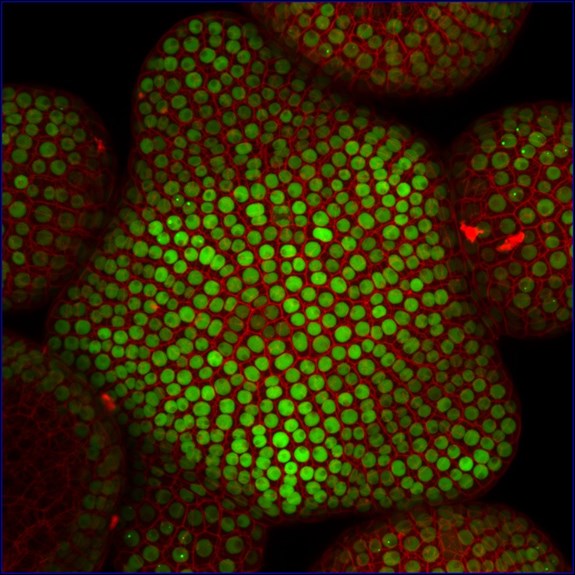
Mgr. Markéta Pernisová, Ph.D.
| e‑mail: |
|---|
Plants, unlike animals, possess a unique developmental plasticity that enables them to develop new organs throughout their entire life. This ability requires the presence of regulators that trigger specific spatiotemporal changes in developmental programs.

| e‑mail: |
|---|
Member of research group:
In de novo organogenesis, the phytohormone auxin acts as the principal morphogen required to initiate any new organ, while cytokinins modulate the type of organogenic response. During in vitro regeneration, auxin activates root formation while cytokinins initiate an early loss of the root identity and induce morphological changes that lead to shoot development. The process is accompanied by changes in cytokinin metabolism, signalling and the differential regulation of gene expression.
Our research is focused on plant regeneration with a special emphasis on the role of cytokinins, their metabolism and signalling. The regulation of gene expression of particular enzymes of cytokinin metabolism is at the centre of our interest. We also study the impact of cytokinins in the organ identity specification during regeneration. We employ a wide range of molecular biology methods, such as CRISPR/Cas9 system along with various cloning methodologies (e.g., Gibson assembly, Gateway) to generate new plant lines, cutting-edge imaging techniques, analysis of gene expression (e.g., RT qPCR, LUC assay), in vitro cultivation, as well as single-cell approaches.


